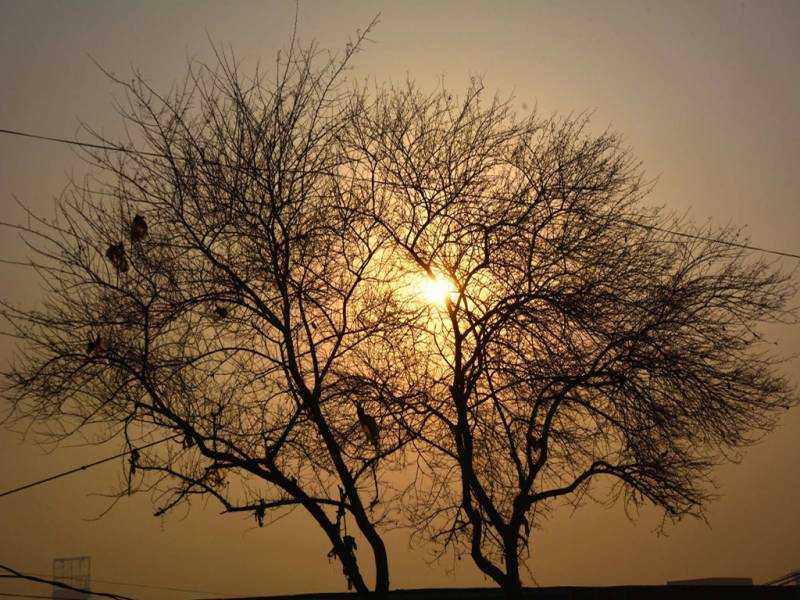The Incoming Dawn

Stay tuned with 24 News HD Android App

The dawn of a new year is about to rise, but despite the passing of another year, it seems Pakistan is stuck in the wrong gear. The passing year has been a tumultuous one.
Starting on feeble legs in January due to a battered economy and a power struggle between then prime minister Imran Khan and the previous army chief, Qamar Bajwa. The bitterness created space for the opposition in Parliament to oust Khan’s government in April.
Despite a coalition of multiple political parties forming the cabinet after Khan was voted out of office, the country has been sailing through extremely choppy waters. As seen in the movie Titanic, one wonders if the alarm bells which are ringing, are those being sounded before the country hits an iceberg or are they the sounds of the band playing the violin while the ship is sinking.
These choppy waters have brought soaring inflation, dwindling foreign exchange reserves, political polarization, and a wave of terrorist attacks across the country. With such daunting challenges staring down the barrel, the political elite and policy makers are solely busy in ensuring they remain seated on the powerful chairs they currently occupy.
The political turmoil since Khan’s removal has only exacerbated on a daily basis. One would have thought that a coalition government formed by prime minister Shehbaz Sharif, comprising of nearly all political parties in Parliament, would settle nerves. The current cabinet has only shown their unpreparedness and lack of vision to steer the country.
It is said that the toppling of Khan’s government was done solely to rid him of the opportunity to appoint former director general of the powerful ISI as Pakistan’s next military chief. General Faiz Hameed had been a shrewd spy chief during his reign as head of the ISI. Political maneuvering, media management and judicial manipulation were just a few tricks Hameed heavily indulged in, enough to provide the opposition a glimpse of what his tenure as army chief could potentially look like. Scarred with his time as spy chief, the opposition moved cautiously but swiftly to successfully remove Khan via a vote of no-confidence.
With Khan out on the streets and the appointment of a new army chief in waiting, a country of over 220 million people became paralyzed with the entire nation solely focused on who would occupy the most powerful seat in Pakistan. As influential generals actively started vying for the top slot, stories and whispers from Islamabad would have you believe that another chapter of the Game of Thrones was being written in the country’s capital.
Midnight meetings, clandestine trips to London (where the formidable Nawaz Sharif is currently in exile), military corp commander meetings discussing the possibility of martial law, diplomatic intel sharing, political concessions and backstabbing, the script had it all. The paralysis of the country, for all those months, only ended when General Asim Munir was able to sit on the Iron Throne at the end of the November.
During those turbulent months, while all eyes were focused on the Iron Throne, the economy tanked. The extravagant 76-member cabinet led by prime minister Shehbaz Sharif is stupefied and seem utterly clueless on how to tackle the tumbling economic indicators. Like a deer caught in headlights, the prime minister astonishingly announced that he did not know the extent of the country’s economic problem when he took office. Foreign exchange reserves have reached a critical level of $5.8 billion, the country is in dire straits. US dollars are rarely available in the market, and even if one can miraculously get their hands on some, only a few hundred are offered at atrocious rates. Businesses are struggling with the non-availability of letters of credit while a chronic energy crisis has severely reduced manufacturing and productivity, causing severe issues for the country’s weak export industry. Cost of basic food items, utilities, medicines and gas prices have all skyrocketed.
With such serious problems ensnaring the incumbent government, one struggles to see how the long-term complications facing the country will be resolved. Pakistan has a bourgeoning youth population whose skillset pale in contrast to a competitive global labor market. An incoming job market crisis is a ticking time bomb. Historically, the country’s economy has been driven by import consumption and a sharp pivot to an export-led economy is required. This pivot seems more daunting with a high number of Pakistani professionals seeking employment opportunities abroad and a poor business environment within the country.
Agriculture, which has been the backbone of Pakistan’s food security, has in terms of yield, productivity and innovation, remained stagnant for the past few decades. Lack of effective policy, climate change and poor urban planning has critically impacted this sector. State owned enterprises, running billions of rupees in losses, have all been politicized to the extent that no government is willing to spend political capital to resolve those entities.
While the economic ship is struggling to sail through these choppy waters, the government is listening to the band playing on the deck, as chaos wreaks havoc all around. One can ask what Pakistan gained by playing the Game of Thrones, nothing but despair and a polarized political environment, leaving the country extremely divided. With the recent spate in terrorist attacks, it seems the country is headed back to a period of turmoil and terrorism it so delicately and painfully managed to get out of not so long ago. With the dawn of the near year on the horizon, let this be the year where political engineering ceases, justice is dispensed on sound legal jurisprudence, and the government takes difficult but necessary economic decisions to steer the course and restructure the country.
